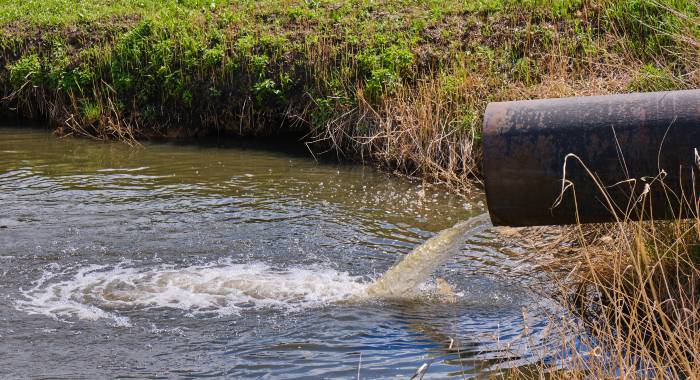It is not a well-known term, but riparian rights play a crucial role in the relationship between property owners and the water bodies that surround or flow through their land.
These rights define the legal framework for using and managing water resources, which can range from small streams and rivers to lakes and ponds.
The laws, which have become complicated as they developed over time, aren’t always easy to understand.
Here, the Property Road team explains more, including the rights and responsibilities of homeowners when it comes to water management. With this knowledge, you’ll now know the answer to, ‘What is riparian ownership in the UK?’.
What are the rights of riparian owners?
The term ‘riparian’ refers to the land or bank adjacent to a natural water source. Understanding the intricacies of riparian rights is essential for homeowners to responsibly enjoy and utilise their water resources while adhering to legal and environmental obligations.
It’s also a good idea to define legally ‘What is a watercourse?’. A watercourse, under the Water Resources Act 1991, will include streams, rivers, cuts, culverts, ditches, sluices and dykes. The law also covers the passages that water will flow through.
There are existing legal principles that govern the relationship between landowners and the water bodies that border their property. These rights are rooted in the idea that the owner of land adjoining a watercourse has certain entitlements and obligations concerning that water source.
Buying A Property? FREE Step-By-Step Platform
These rights vary based on jurisdiction and historical legal frameworks, but they usually include the following:
Access to water
Riparian landowners generally have the right to access and use the water source for reasonable purposes, such as drinking, irrigation and domestic use. This access should not unreasonably interfere with the rights of other riparian landowners.
Natural flow
Riparian rights often entail the right to have the watercourse flow naturally and without significant interference. Activities that alter the natural flow, such as dam construction, may require legal approval.
Reasonable use
Riparian landowners must exercise their rights in a reasonable manner that does not negatively impact other riparian owners or the environment. However, what constitutes ‘reasonable use’ can vary and may be subject to legal interpretation.
We should also highlight that under the law, a homeowner will need permission for some activities from the Environment Agency and also a local authority.

The risks that riparian homeowners face
While riparian rights grant specific privileges to homeowners, they also come with responsibilities and potential risks.
Ignorance of these responsibilities can lead to legal disputes, environmental harm and damage to neighbouring properties. Some common risks include:
Water pollution
Homeowners might unknowingly pollute water bodies through improper waste disposal or chemical runoff from their property. This can result in environmental degradation and potential legal action from affected parties or regulatory bodies. You MUST report an incident involving pollution or an unusual change in the water’s flow.
Alteration of watercourses
Unauthorised construction projects, like building dams or diverting watercourses, can disrupt the natural flow of water. Such alterations can trigger flooding, erosion and harm to downstream properties.
Neighbour disputes
Conflicts may arise when one landowner’s water use negatively impacts another’s. Disputes over water quantity, quality or alteration of watercourses can escalate into legal battles.
Regulatory compliance
Failure to obtain the necessary permits or approvals for activities that impact water bodies can lead to fines, legal penalties and forced restoration of any work carried out.
The riparian owner must also allow easy access to their watercourse for inspection and maintenance. You should also check for any local bylaw that exists affecting your legal rights.
Resolving riparian disputes
Having discussed the rights and responsibilities of riparian rights for homeowners, what happens if there is a dispute? And how will you resolve it?
In most cases, the issues of conflict will be with neighbours over water usage – and these will need to be resolved either through mediation or speaking with the neighbours before legal action is started. That way, an expensive and time-consuming court case will be avoided.
Climate change issues
It’s worth mentioning too that there might be issues as a homeowner with riparian rights over climate change issues.
That’s because changing climate patterns mean that water availability and flow can be affected.
Consequently, homeowners must adapt to these changes and consider water conservation practices and be prepared for flooding.
And the potential for flooding events means your home insurance costs will increase – and that might be off-putting to a buyer should you ever decide to sell.
Do riparian rights have an impact on the future ability to sell a property?
Riparian rights can have an impact on the future ability to sell a property. When making a purchasing decision, potential buyers will surely consider the extent of the rights associated with a property.
However, having strong riparian rights can boost the value of a property, especially if it has direct access to a water body that allows for recreational activities such as fishing, boating or swimming.
Uncertain or limited riparian rights can raise concerns for both buyers and lenders, potentially affecting the property’s marketability and sale price.
If you are buying a property with riparian rights, then you really do need to carry out due diligence to understand the scope of the rights associated with the property, as well as any potential restrictions or obligations that come with those rights.
If you are a seller and there are legal disputes or ongoing issues related to the property’s riparian rights, it might deter potential buyers from proceeding with the purchase – especially since you will have to inform them about any dispute.
With this in mind, we’d recommend using a good conveyancing solicitor who is able to deal with the unique legal issues that riparian rights can raise when buying or selling a property. You can find one using the form below:
What is riparian ownership in the UK?
As explained, riparian rights are a complex legal and environmental framework that significantly influences how homeowners interact with the authorities over the flow of water on their land.
A thorough understanding of these rights, along with the associated responsibilities, is essential for homeowners to enjoy the benefits of water resources while minimising risks to the environment and neighbouring properties.
By adhering to environmental stewardship, balancing water use and gaining relevant permissions for work from relevant authorities will be key under riparian rights.
Don’t forget that effective dispute resolution means you will be able to navigate the intricacies of riparian rights and contribute to the sustainable management of water resources for present and future generations.
And if you are buying a property with riparian rights, research them thoroughly but don’t be put off – the legalities are there to protect you and others and help ensure you and future generations enjoy the water you border or have on your land.





